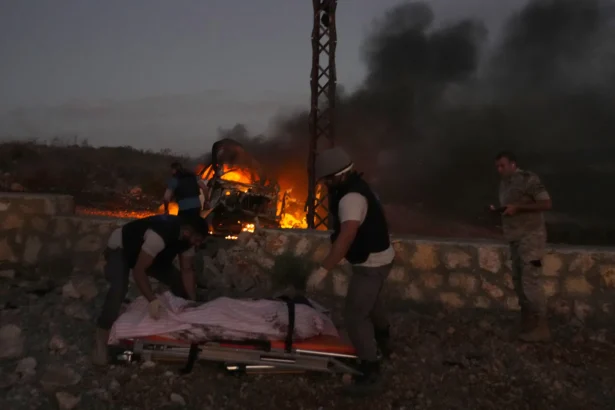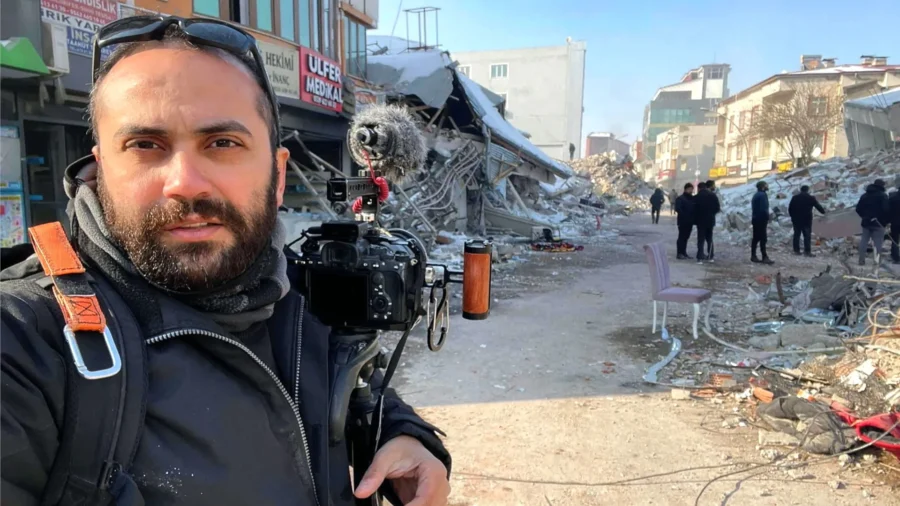At least one journalist was killed, and six others were injured when Israel Defense Forces (IDF) artillery shells struck a gathering of international journalists covering clashes on the Israel-Lebanon border.
The Reuters news agency confirmed in a statement on Friday that the reporter who died was Issam Abdallah, a videographer who was working for the agency in southern Lebanon to provide a live video signal.
“We are deeply saddened to tell you that our videographer, Issam Abdallah, has been killed,” Reuters said. “We are urgently seeking more information, working with authorities in the region, and supporting Issam’s family and colleagues,” it added.
Thaer Al-Sudani and Maher Nazeh, two Reuters journalists, were wounded in the shelling in the border area and are “seeking medical care,” according to the statement.
— Reuters Press Team (@ReutersPR) October 13, 2023
Meanwhile, the Al-Jazeera Media Network said two of its employees, videographer Elie Brakhya and reporter Carmen Joukhadar, were also among those wounded.
“The tank shell hit them directly. It was horrible. The situation over there was, I can’t explain, I can’t describe it,” Ali Hashem, a correspondent for the Qatar-based Arab news channel, said from Alma ash-Shaab, adding the journalists were clearly marked as press, the network reported.
According to a number of reports, a correspondent from the news agency AFP was also injured in the strike, but NTD News is unable to verify these reports because the network has not released a public statement on the matter.
The incident occurred soon after the IDF said artillery shells were fired at Hezbollah posts after the Lebanese terrorist group opened fire at several IDF military facilities.
In a statement on X, the social media platform formerly known as Twitter, the IDF said UAVs are currently “striking terrorist targets belonging to Hezbollah in Lebanon.”
Footage circulating on social media appears to show the aftermath of the artillery strike, with a man trying to aid an injured woman lying on the ground. In the video, the man can be seen trying to help a female reporter wearing a vest with the word “press.” NTD News is unable to independently verify the accuracy of the video.
Another video on X appears to show the impact of the bombing. In the 30-second clip, a woman is heard shouting repeatedly, “I can’t feel my legs.” The explosion caused a thick cloud of black smoke clouding the area.

The Lebanon-Israel border has been witnessing sporadic acts of violence since the Palestinian terrorist group Hamas launched a destructive attack on southern Israel last weekend. Since then, journalists from around the world have been coming to Lebanon out of concern that war might break out between the Hezbollah terrorist group and Israeli forces.
Journalists Among Casualties
According to an Oct. 12 report by the non-profit Committee to Protect Journalists (CPJ), at least 10 journalists—nine Palestinians and one Israeli—were killed in the first six days of the Israel-Hamas conflict, which has already claimed nearly 3,000 lives on both sides and resulted in thousands of injuries.
The report underscored that Palestinian journalists working in Gaza face a higher risk as they try to cover the conflict due to Israeli airstrikes disrupting communications and causing extensive power outages.
“CPJ emphasizes that journalists are civilians doing important work during times of crisis and must not be targeted by warring parties,” said Sherif Mansour, CPJ’s Middle East and North Africa program coordinator. “Millions across the world are counting on reporters in the region to provide accurate information about the conflict. Journalists, like all civilians, must be respected and protected.”
The committee identified reporters who died as a result of the conflict as Sowt Al-Asra Radio journalist Ahmed Shehab; editor-in-chief of the Al-Khamsa News website Saeed al-Taweel; freelance journalists Mohamed Fayez Abu Matar and Assaad Shamlakh; Khabar Agency reporters Mohammed Sobh and Hisham Alnwajha; Israel Hayom photographer Yaniv Zohar; Fourth Authority news agency journalist Mohammad Al-Salhi; Smart Media reporter Mohammad Jarghoun; and Ain Media photographer Ibrahim Mohammad Lafi.
The Associated Press contributed to this report.

